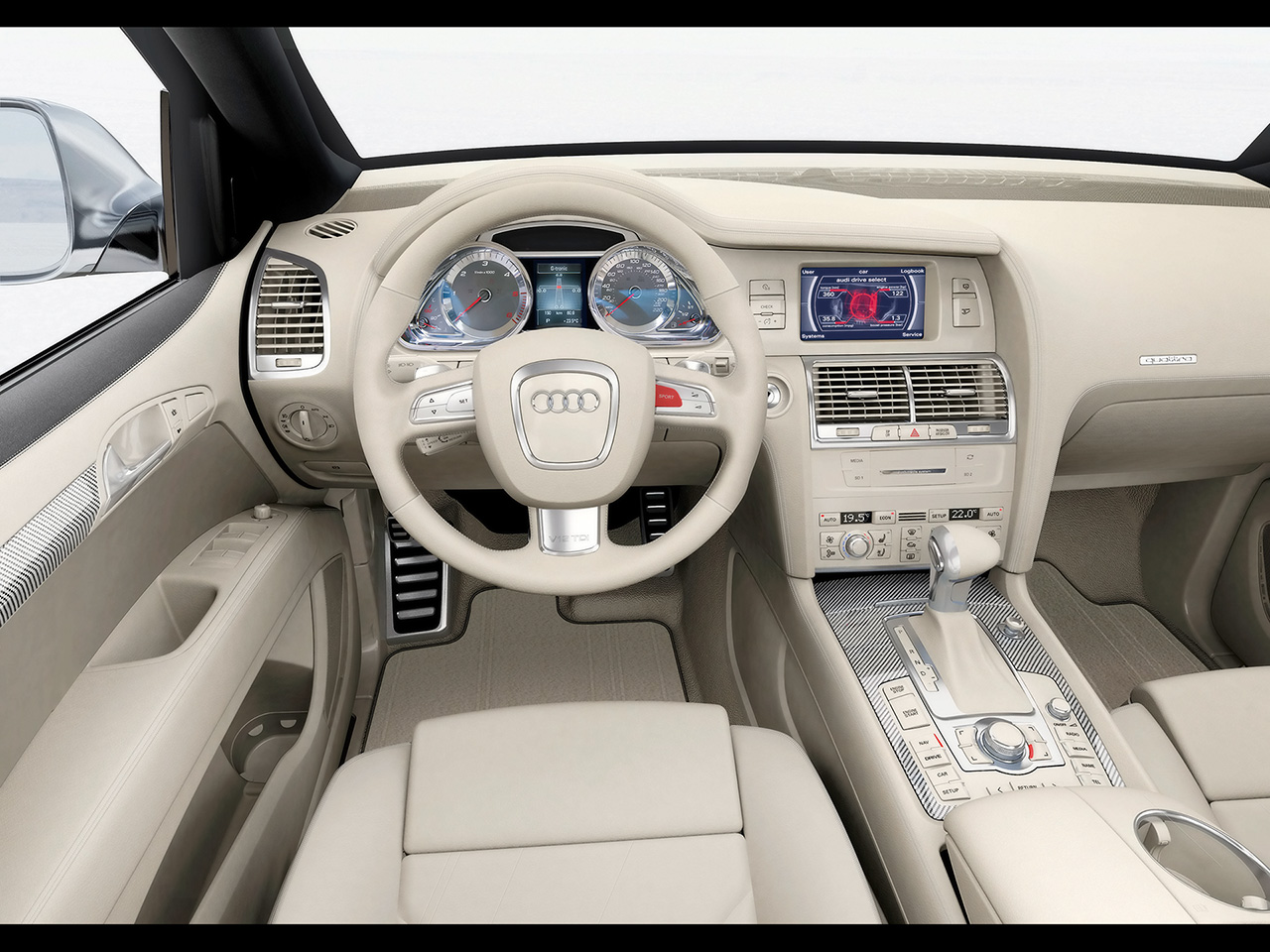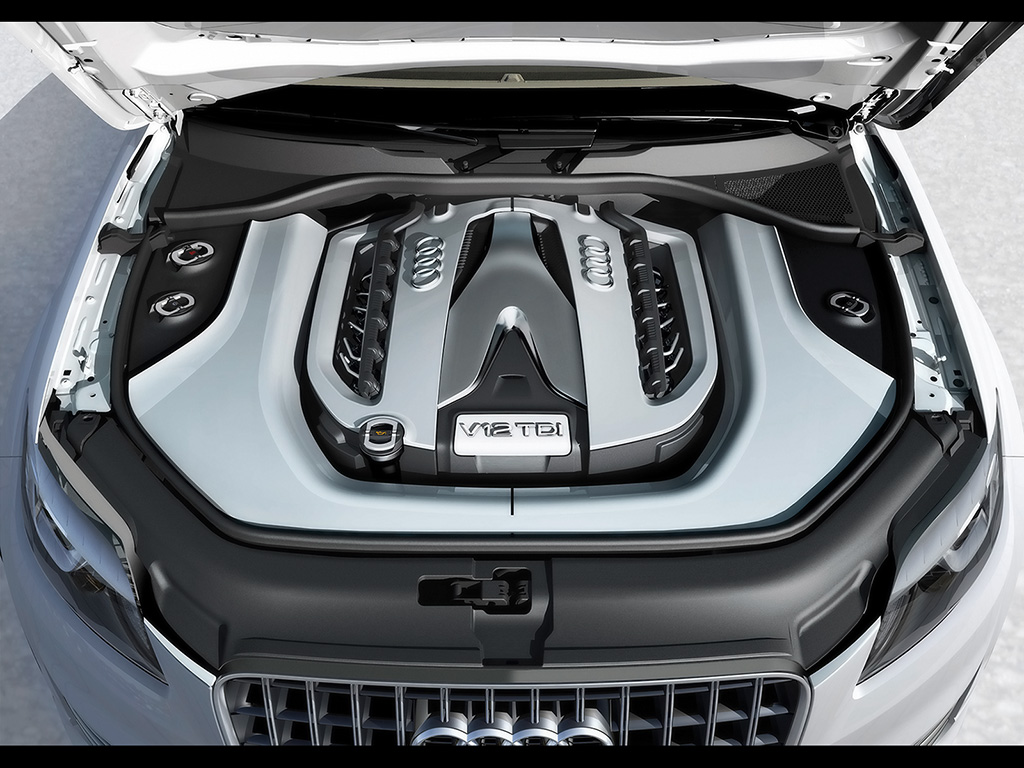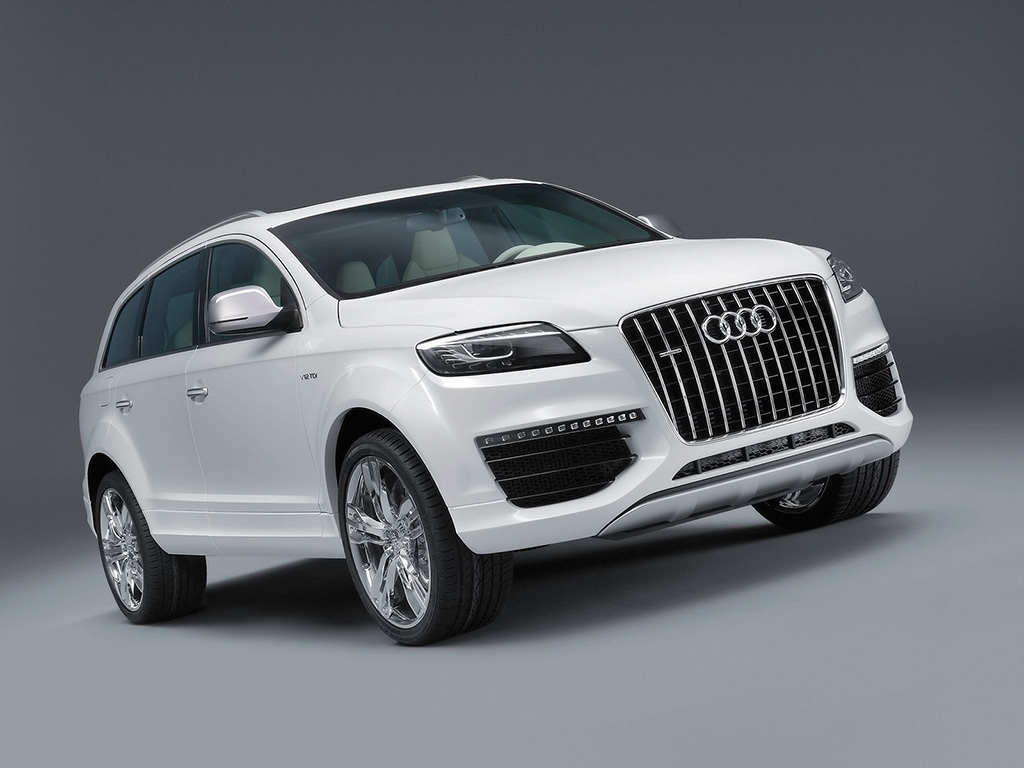2007 Audi Q7 V12 TDI Revised
|
Price |
-- |
Production |
-- | ||
|
Engine |
5.9 liter diesel V12 |
Weight |
-- | ||
|
Aspiration |
twin turbochargers |
Torque |
738 lb-ft @ 1750 - 3000 rpm | ||
|
HP |
500 hp |
HP/Weight |
-- | ||
|
HP/Liter |
84.7 hp per liter |
1/4 mile |
-- | ||
|
0-62 mph |
5.5 seconds |
Top Speed |
155 mph (electronically limited) |
(from Audi Press
Release) An output of 500 bhp and 738 ft.-lbs. of torque –
Audi is unveiling an engine which sets new standards in the diesel
sector. The majestic V12 TDI power unit with its capacity of six
litres endows the high-performance Audi Q7 SUV with sports car
credentials. It is the harbinger of a wide-scale model initiative,
as Audi seeks to make major inroads into the US market with its
diesel models – courtesy of a new emission control technology which
cuts emissions drastically.
The Audi Q7 V12 TDI raises the bar in the burgeoning sports utility
vehicle segment. A time of just 5.5 seconds for the dash from zero
to 100 km/h and an electronically governed top speed of 250 km/h
give the high-performance SUV sports car calibre. Its six-litre
twelve-cylinder diesel unit demonstrates the tremendous
technological expertise at Audi's fingertips. 18 years after the
Ingolstadt brand invented the modern-day TDI engine, it is
presenting it in an all-new high-tech, range-topping guise.
Audi makes the vital breakthroughs
All of the diesel
engines from Audi deserve the tag of 'sporty' on account of their
impressive performance – the six and eight-cylinder 2.7 TDI, 3.0 TDI
and 4.2 TDI units serve to underline this. The pioneering role that
Audi assumes in the field of diesel technology stems from the
peerless expertise it has amassed over recent decades. Audi
engineers have been responsible for one vital breakthrough after
another – the most important of these was the world's first ever TDI
engine to be fitted in a passenger car, which Audi introduced in
1989.
Last year, Audi demonstrated the dynamic potential of diesel power
in most memorable fashion on race tracks around the world. The V12
TDI in the R10 sports prototype unleashed in excess of 650 bhp and
left its petrol-engined competitors in its wake in each of the eight
races it competed in. Highlights of this winning streak included its
triumph at the gruelling Le Mans 24 Hours as well as its victories
in the LMP1 category of the American Le Mans Series.
The trend towards diesel engines is gathering strength all the time
in the United States too. Audi is firmly convinced that the TDI
engine represents the powerful and economical alternative for the
future of motoring, and is therefore preparing a model drive to
bolster this trend. The Q7 3.0 TDI is expected to hit showrooms in
the USA in late 2008. Thanks to the exceptionally low emissions
resulting from its cutting-edge Bluetec technology, this engine even
complies with the US Tier II Bin 5 standard which places extremely
tough demands on nitrogen oxide and particulate emissions.
SCR catalytic converter for reducing nitrogen oxide levels
At the core of the Bluetec technology is a catalytic converter known by the abbreviation of SCR (Selective Catalytic Reduction). The second system component takes the form of an auxiliary tank which contains a carbonyl diamide solution. The solution is injected in small doses into the exhaust system where it decomposes into ammonia, which then breaks down the nitrogen oxides into nitrogen and water. The arrival of the ultra-clean Bluetec diesel engines will see Audi hold true to its tradition of always being at the very forefront of diesel technology.



